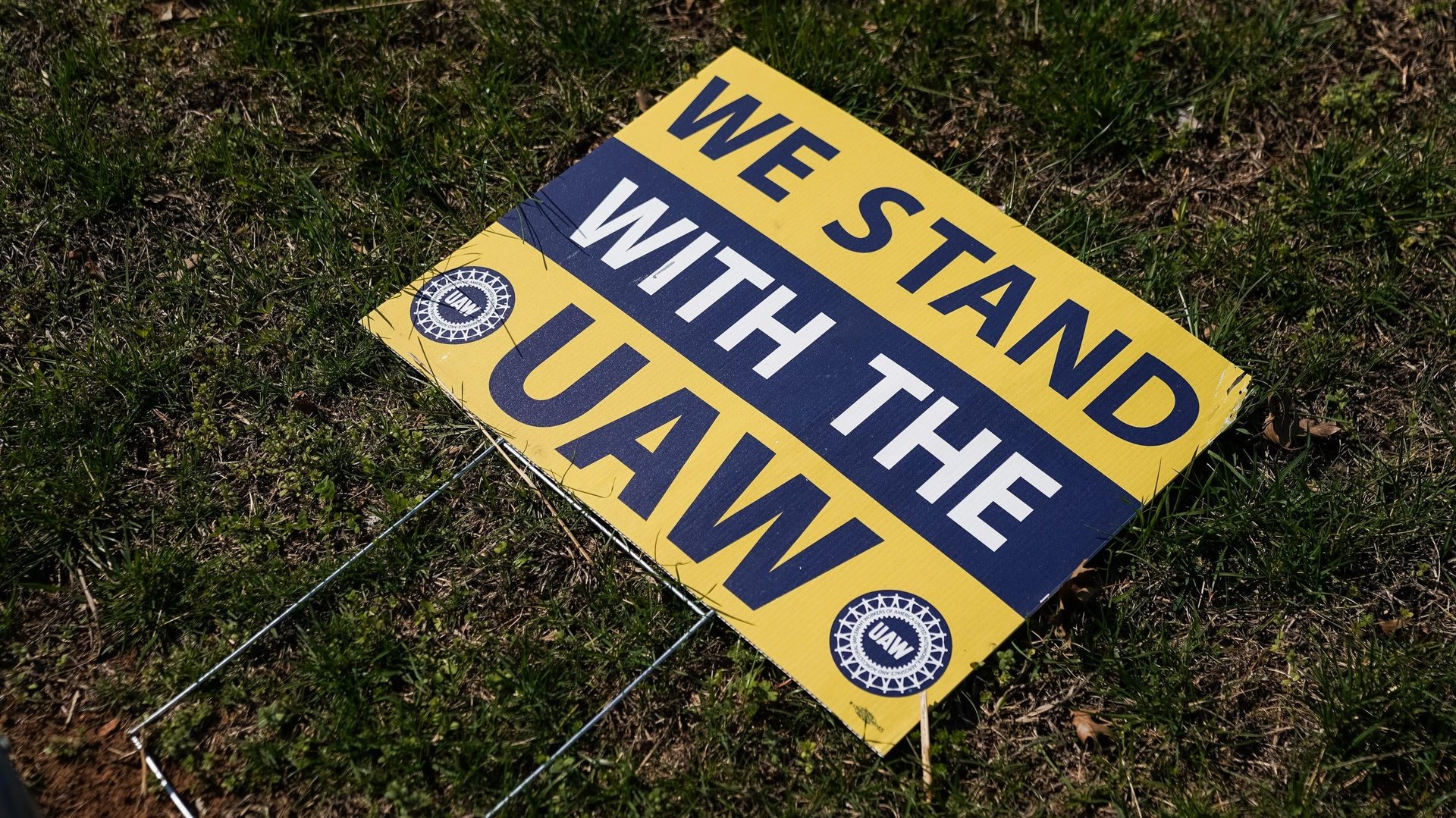Republican governors say the UAW's unionization push will 'threaten our jobs and the values we live by'
The UAW has sought to grow its membership beyond its traditional stronghold among workers for Ford, General Motors, and Stellantis

Six Republican governors are pushing back against the United Auto Workers’ big unionization drive in southern car factories. The governors of Alabama, Georgia, Mississippi, South Carolina, Tennessee, and Texas issued a joint statement Tuesday decrying the UAW’s push to represent autoworkers in their states.
Suggested Reading
“As governors, we have a responsibility to our constituents to speak up when we see special interests looking to come into our state and threaten our jobs and the values we live by,” they said.
Related Content
This year, workers at a Mercedes-Benz plant in Alabama and a Volkswagen plant in Tennessee have sought UAW representation, and both facilities will be holding unionization votes this week.
The UAW has sought to grow its membership beyond its traditional stronghold among workers for Ford, General Motors, and Stellantis — the so-called “Big Three” American car companies — after its strikes last year secured big pay increases and other benefits. In February, the union said it would be dedicate $40 million over the next two years for the unionization drive.
But the southern governors warned Tuesday that the rise of organized labor in their states — which have some of the lowest rates of unionization in the country — might lead to layoffs.
“The experience in our states is when employees have a direct relationship with their employers, that makes for a more positive working environment,” said the statement from Govs. Kay Ivey of Alabama, Brian Kemp of Georgia, Tate Reeves of Mississippi, Henry McMaster of South Carolina, Bill Lee of Tennessee, and Greg Abbott of Texas.
All six states have so-called right-to-work laws that make it harder for unions to collect the dues that fund their collective bargaining activity. In Alabama, Mississippi, and Tennessee, the policy is enshrined in their state constitutions.
The Economic Policy Institute suggests that “unions threaten the Southern economic development model” that traces its origins to slavery “because they have historically been the primary counterweight against businesses seeking to keep wages and benefits low.” All six states that signed the statement fought in the Civil War as members of the Confederate State of America, which sought to preserve slavery as the basis of all socioeconomic activity.
The Mercedes and Volkswagen union pushes are not the first time that the UAW has tried to unionize in the south. It failed to win votes at the Volkswagen facility in 2014 and 2019. But a win this week would mark a major shift in southern labor relations.